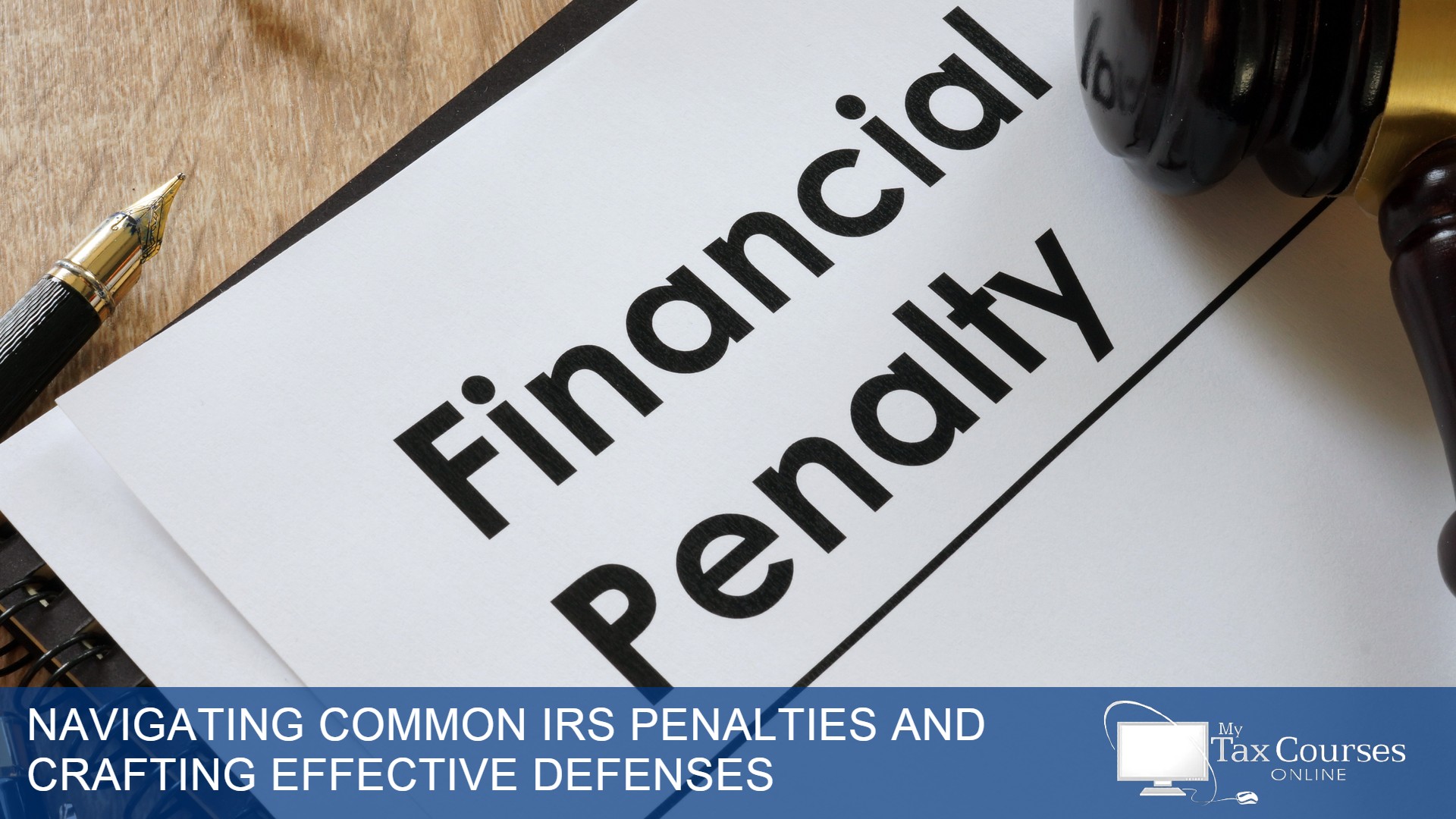For tax preparers, guiding clients through the intricate landscape of tax regulations is both an art and a science. While striving for accuracy is paramount, even the most diligent efforts can sometimes encounter IRS penalties. In this blog, we'll delve into five common IRS penalties that tax preparers and their clients might face, along with valuable insights into crafting robust defenses to safeguard against these challenges.
Failure to File Penalty:
Failing to file a penalty can be a stumbling block for many taxpayers. As a tax preparer, it's essential to stress the importance of adhering to filing deadlines. However, when unforeseen circumstances arise, understanding the defenses is crucial. Encourage clients to maintain comprehensive records, as presenting reasonable cause for the delay can lead to a penalty waiver.
Failure to Pay Penalty:
Helping clients avoid the failure to pay penalties requires proactive planning. Make sure to emphasize the importance of estimating and paying taxes owed promptly. By working closely with your clients to adjust withholding or make estimated payments, you can assist them in avoiding this penalty. Timely communication with the IRS regarding payment arrangements can also be a strong defense.
Accuracy-Related Penalty:
Mistakes on tax returns can lead to an accuracy-related penalty. As a tax preparer, your role in minimizing errors is pivotal. Make sure that the data collection and entry are complete, and it's important to maintain thorough records. When mistakes occur, demonstrating a good-faith effort to comply with tax laws can provide a strong defense against this penalty.
Underpayment Penalty:
Mitigating the underpayment penalty requires a proactive approach to tax planning. Work closely with your clients to ensure they make accurate tax estimates throughout the year. Educate them on the significance of withholding the correct amount from their income sources or making timely estimated payments. In cases of unforeseen financial hardship, explore the possibility of requesting a waiver based on genuine reasons.
Fraud Penalty:
For tax preparers, vigilance against fraudulent activities is paramount. While the fraud penalty is one of the most severe, you can play a significant role in defense by ensuring that clients provide accurate and transparent financial information. Should a client be accused of fraud, recommend seeking legal counsel promptly. Your documentation and accurate record-keeping can also serve as valuable evidence in crafting a robust defense.
As a tax preparer, your expertise extends beyond just crunching numbers – it's about guiding clients toward compliance and financial well-being. By understanding these common IRS penalties and their potential defenses, you can bolster your ability to navigate the complexities of tax preparation effectively. Communication, meticulous record-keeping, and an unwavering commitment to accuracy are your tools for minimizing penalties and providing clients with the best possible outcomes.




